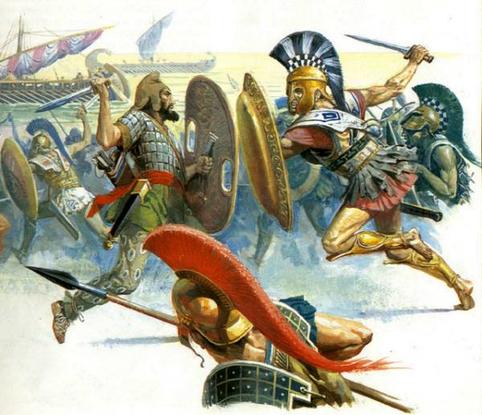Phase III: Ionian War
Ionian War
The defeat at Syracuse in 414 BC saw the Athenian military crippled. While their land forces perishing is regrettable, the loss of their naval assets was near-irreplaceable, not because of ship losses which could be replaced, but because of the loss of their experienced sailors who had won battle after battle in the preceding years.
Now struggling to maintain their hold on the seas, Athens raised taxes in the Ionian regions of Asia Minor. Faced with a difficult situation as Spartan's naval assets had also been crippled (though not near as much), Sparta turned to the civilization that decades before threatened the Greek way of life: Persia. 412 BC saw the signing of the Treaty of Miletus which stated that western Asia Minor would be returned to Persia woefully in return of providing gold and men to aid the Peloponnesian Fleet. Happily, Persia obliged. Now backed by Persian gold and manpower, the Delian League faced a near-invincible Peloponnesian Fleet. Alongside a Fleet that now shadowed theirs, Athens faced Ionian revolts in Asia Minor due to the raised expectations of the silver mines.

(Ionian Revolts/Sparta and Persia fighting side-by-side against Athens)
At last, Athens is brought to its breaking point as Peloponnesian assets march and sailed on Athenian forces at Aegospotami in. In a decisively swift battle, 405 BC saw the Spartan military and its allies crush what remained of the Athenian forces. In 404 BC, Sparta marched on the Wall of Athens. Facing an irrefutable defeat, Athens capitulates and after nearly thirty years of bloodshed, the Peloponnesian War was over. Sparta finally claimed control over Greece.